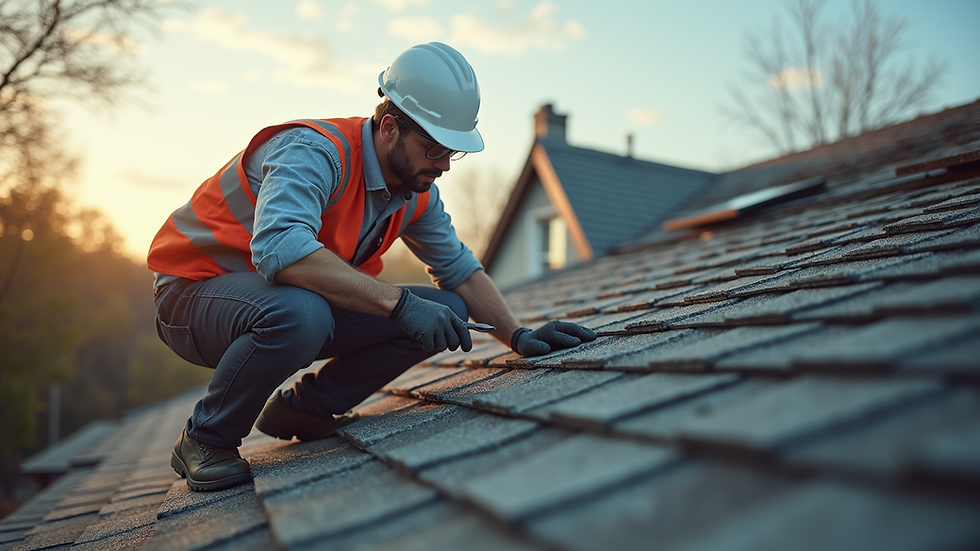Master Your Home Purchase with Reliable Quality Inspections
- requilmt
- Jul 9, 2025
- 4 min read
Updated: Aug 16, 2025
Buying a home is one of the most significant decisions you will ever make. It is not just about finding a place to live; it is about investing in your future. With so much at stake, ensuring that your new home is in good condition is crucial. This is where Reliable Quality Inspections come into play.
In this blog post, we will explore the importance of home inspections, what to expect during the process, and how to choose the right inspector. By the end, you will be equipped with the knowledge to master your home purchase and make informed decisions.
Why Home Inspections Matter
Home inspections are essential for several reasons. First and foremost, they help identify potential issues that could cost you a fortune down the line.
Uncover Hidden Problems: Many issues are not visible during a casual walk-through. A professional inspector can spot problems like mold, structural damage, or faulty wiring that you might miss.
Negotiate Better Terms: If the inspection reveals significant issues, you can negotiate repairs or a lower price with the seller. This can save you thousands of dollars.
Peace of Mind: Knowing that your new home has been thoroughly inspected can give you peace of mind. You can move in knowing that you have made a sound investment.
What to Expect During a Home Inspection
Understanding what happens during a home inspection can help you feel more prepared. Here is a step-by-step breakdown of the process:
Scheduling the Inspection: Once your offer is accepted, schedule the inspection as soon as possible. This is typically done within a week.
The Inspector's Arrival: The inspector will arrive with tools and equipment to assess the property. They will usually spend two to three hours on-site.
Exterior Inspection: The inspector will start outside, checking the roof, siding, windows, and foundation. They will look for signs of damage or wear.
Interior Inspection: Next, they will move inside to inspect the plumbing, electrical systems, and appliances. They will also check for signs of pests or water damage.
Final Report: After the inspection, you will receive a detailed report outlining their findings. This report will include photos and recommendations for repairs.
Common Issues Found During Inspections
Knowing what common issues to look for can help you understand the importance of inspections. Here are some frequent problems that inspectors often find:
Roof Damage: Missing shingles, leaks, or signs of wear can indicate that the roof needs repairs or replacement.
Plumbing Issues: Leaky pipes, outdated fixtures, or poor water pressure can lead to costly repairs if not addressed.
Electrical Problems: Outdated wiring, insufficient outlets, or faulty circuits can pose safety hazards.
Pest Infestations: Signs of termites or rodents can indicate a bigger problem that needs immediate attention.
The Cost of Home Inspections
The cost of a home inspection can vary based on several factors, including the size of the home and the location. On average, you can expect to pay between $300 and $500 for a standard inspection.
While this may seem like an added expense, consider it an investment in your future. The money spent on an inspection can save you thousands in repairs and give you peace of mind.
What Happens After the Inspection
Once you receive the inspection report, you will need to decide how to proceed. Here are your options:
Request Repairs: If significant issues are found, you can ask the seller to make repairs before closing.
Negotiate Price: Use the inspection findings to negotiate a lower purchase price.
Walk Away: If the issues are too severe, you may choose to walk away from the deal. This is your right as a buyer.
The Importance of Follow-Up Inspections
If repairs are made after the initial inspection, consider scheduling a follow-up inspection. This ensures that the work was done correctly and that no new issues have arisen.
Follow-up inspections can provide additional peace of mind and help you feel confident in your purchase.
Tips for a Successful Home Inspection
To make the most of your home inspection, keep these tips in mind:
Be Present: Attend the inspection if possible. This allows you to ask questions and gain a better understanding of the property.
Take Notes: Jot down any concerns or questions that arise during the inspection. This will help you remember important details later.
Stay Open-Minded: Remember that no home is perfect. Focus on major issues rather than minor cosmetic flaws.
The Role of Real Estate Agents
Your real estate agent can play a crucial role in the inspection process. They can recommend reputable inspectors and help you understand the findings.
Additionally, they can assist in negotiations based on the inspection report. Having a knowledgeable agent by your side can make the process smoother and less stressful.
Understanding the Inspection Report
The inspection report can be overwhelming, especially if you are not familiar with the terminology. Here are some key components to look for:
Summary: Most reports will include a summary of major findings. This is a good place to start.
Photos: Look for photos that illustrate the issues found. This can help you visualize the problems.
Recommendations: Pay attention to the inspector's recommendations for repairs or further evaluations.
Final Thoughts on Home Inspections
Purchasing a home is a significant investment, and quality inspections are a vital part of the process. By understanding the importance of inspections, knowing what to expect, and choosing the right inspector, you can make informed decisions.
Remember, a thorough inspection can save you money and provide peace of mind. Take the time to invest in this crucial step, and you will be well on your way to mastering your home purchase.

In the end, the goal is to ensure that your new home is a safe and sound investment. With the right knowledge and preparation, you can navigate the home buying process with confidence. Happy house hunting!

Comments